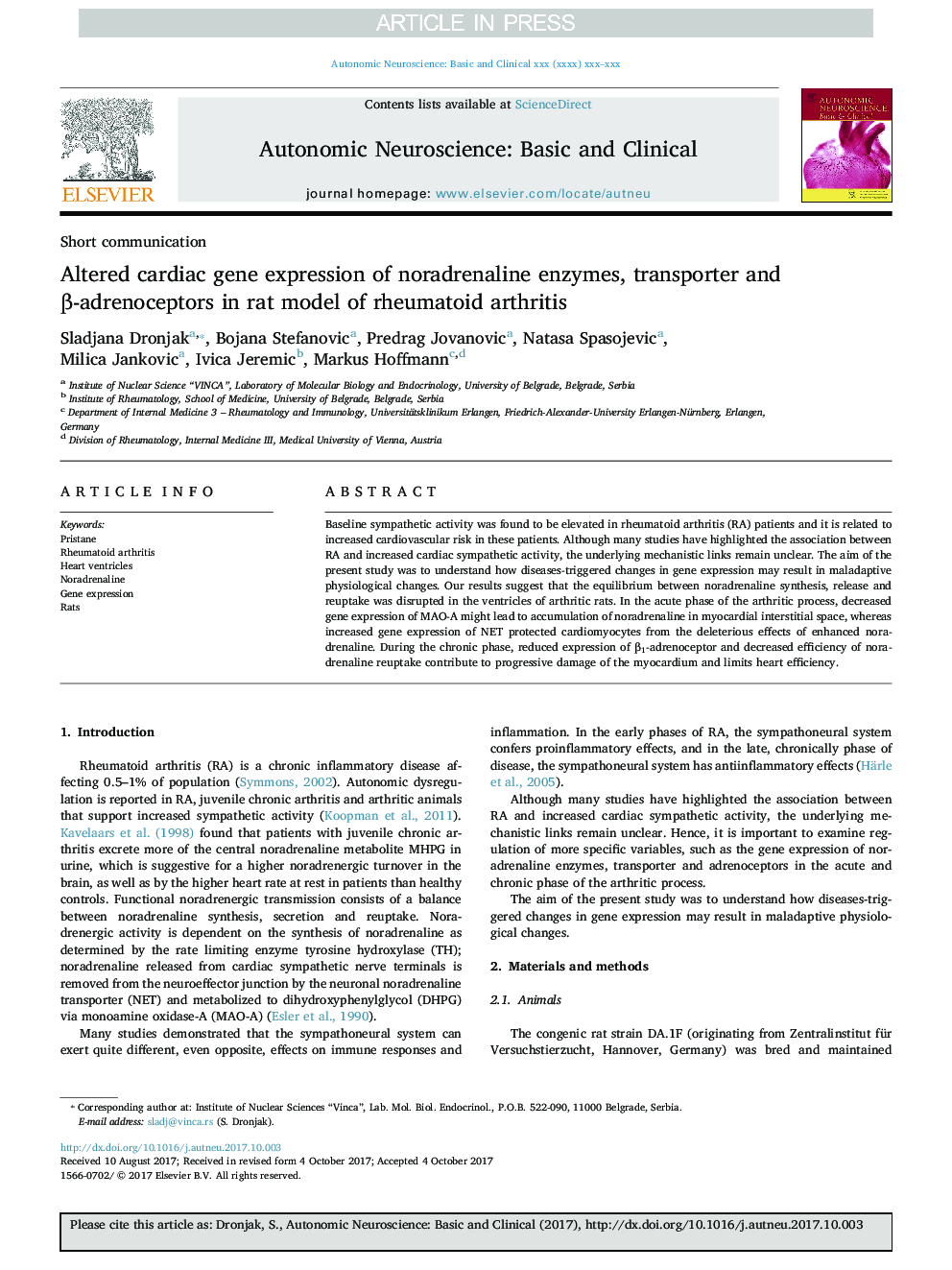| Article ID | Journal | Published Year | Pages | File Type |
|---|---|---|---|---|
| 8681093 | Autonomic Neuroscience | 2017 | 5 Pages |
Abstract
Baseline sympathetic activity was found to be elevated in rheumatoid arthritis (RA) patients and it is related to increased cardiovascular risk in these patients. Although many studies have highlighted the association between RA and increased cardiac sympathetic activity, the underlying mechanistic links remain unclear. The aim of the present study was to understand how diseases-triggered changes in gene expression may result in maladaptive physiological changes. Our results suggest that the equilibrium between noradrenaline synthesis, release and reuptake was disrupted in the ventricles of arthritic rats. In the acute phase of the arthritic process, decreased gene expression of MAO-A might lead to accumulation of noradrenaline in myocardial interstitial space, whereas increased gene expression of NET protected cardiomyocytes from the deleterious effects of enhanced noradrenaline. During the chronic phase, reduced expression of β1-adrenoceptor and decreased efficiency of noradrenaline reuptake contribute to progressive damage of the myocardium and limits heart efficiency.
Related Topics
Life Sciences
Neuroscience
Cellular and Molecular Neuroscience
Authors
Sladjana Dronjak, Bojana Stefanovic, Predrag Jovanovic, Natasa Spasojevic, Milica Jankovic, Ivica Jeremic, Markus Hoffmann,
